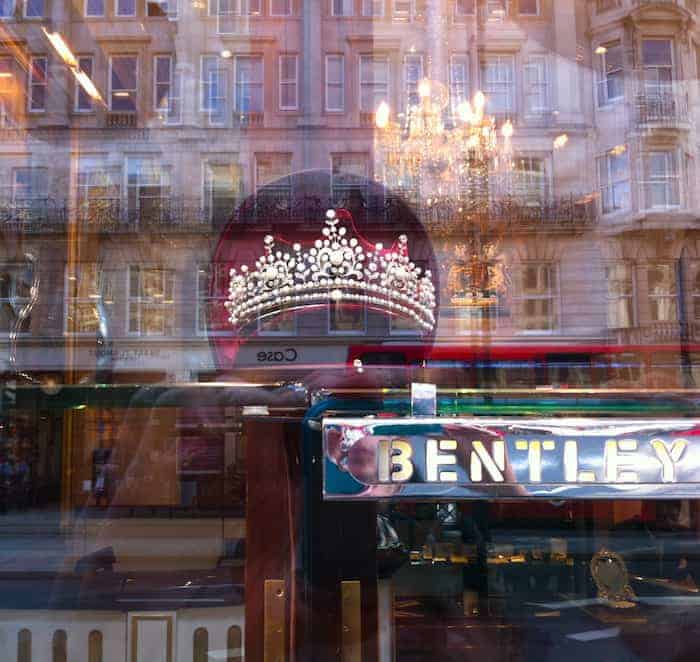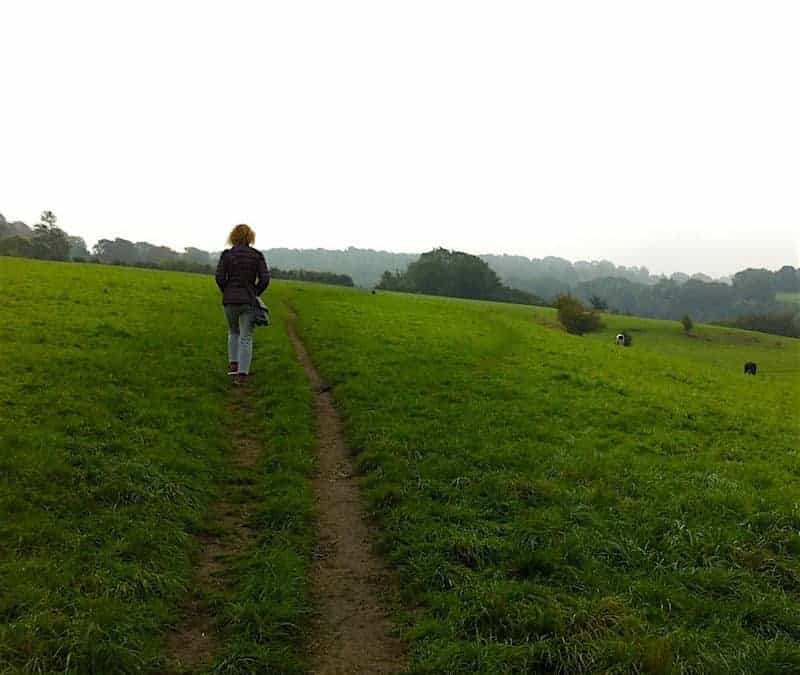“Feeling so nostalgic for London,” said my friend Tai this morning. “It must be the autumnal weather.”
She and I spent two weeks in England exactly a year ago, hiking through Jane Austen country in beautiful Bath and then sampling the great parks and urban energy of London. Yet those two weeks were enough to lay down lifelong memories deep inside our bodies. And the nostalgia she mentioned was a sensory longing. Those explorations of the River Avon, walking along the canals and through the sudden green mists of the hills above the town. The noisy excitement of bustling London streets, shiny from morning rain, filled with lights, traffic, coffeehouses, architectural grandeur, the pungent pleasures of teatime loaded with tiny sandwiches and fat little cakes. Yes, our visit to England had been a broad cascade of adventures all accessed through our bodies.

The same sort of nostalgia is rarely kindled by simply having looked through a picture book of London. Or by watching a National Geographic special about the bohemian barge dwellers of the River Avon. Why? Because those experiences are filtered through other media. They cannot give us direct contact with the place, the weather, the people.
Nothing cuts through the numbing filter of contemporary media like action. Think about it. Merely reacting to a phrase or a sense of obligation, or the suggestion of a pop-up ad is to submit to someone else’s agenda. “They” feed you ideas, you react. “They” call the tune, you dance.
Digital devices provide us with data, our bodies provide actual experiences. Immediacy is the antidote to media.
 Our senses are our direct connection with the world around us – through our bodily awareness the world comes to us as a symphony of aromas, textures, and flavors. No TV special delivers the deep tissue awe of that first glimpse of the Grand Canyon. No internet article on gardening can deliver the uncomplicated delight of watching your carrot seedlings push up toward the sun. Can you feel the fur of that cute cat on the latest FB video? Nope, but your hands want to don’t they?
Our senses are our direct connection with the world around us – through our bodily awareness the world comes to us as a symphony of aromas, textures, and flavors. No TV special delivers the deep tissue awe of that first glimpse of the Grand Canyon. No internet article on gardening can deliver the uncomplicated delight of watching your carrot seedlings push up toward the sun. Can you feel the fur of that cute cat on the latest FB video? Nope, but your hands want to don’t they?
 The body is the gateway to feelings that dive inside us—the sensory pleasures that help create our taste, our style of living, our personal ambitions. Magazine advertisers have caught on to this, that’s why all those fashion magazines are loaded with actual perfume samples. An aroma stays with us more vividly that a product photo.
The body is the gateway to feelings that dive inside us—the sensory pleasures that help create our taste, our style of living, our personal ambitions. Magazine advertisers have caught on to this, that’s why all those fashion magazines are loaded with actual perfume samples. An aroma stays with us more vividly that a product photo.

Many of us unreflectively conduct lives mediated by screens: screens insisting that we need this product, screens showing us the symbols and letters sent by a friend, screens showing us far-away destinations or domestic interiors to tempt us into this or that purchase. What we glimpse through those media is someone else’s idea of what we need, and how we should live. And those images on those screens are seen by millions of others. There’s the rub! [Vermeer alt by Mitchell Grafton]
To live facing the Screen is to live a collective, and hence generic life. It is to sacrifice our individuality, our own choices, our body’s discoveries. It is to be not ourself, but always an Other. What we give up by all watching the same news, soaking up the same sports matches, choosing the same clothing and accessories are the unique moments, choices and discoveries we could have made . . . by and for ourself. In this collective addiction to mediated living, we erode the adventures and discoveries that can make our history ours alone—that make us individuals, not part of a herd.


